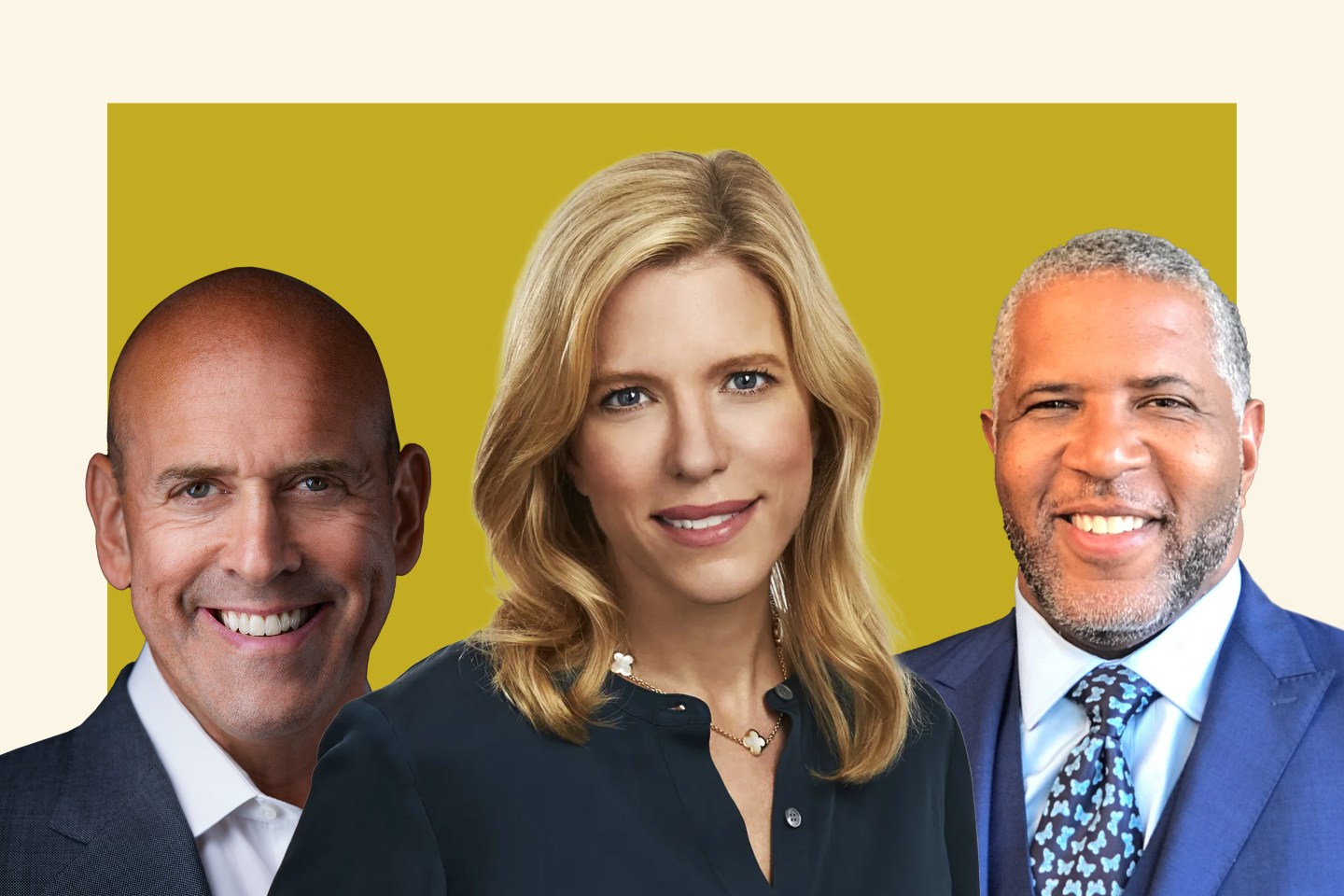Good morning. Luisa Beltran here, filling in for Sheryl who is off for a few well-deserved days of vacation.
Mergers have slowed in the past year due to high interest rates, the war in Ukraine, and inflation. The IPO market also remains mostly closed. But there’s still an option for CFOs seeking a lifeline, or a possible exit, for their companies: private equity firms.
There were more than 18,000 PE funds in 2021, according to data from Sen. Elizabeth Warren, D-Mass. (She introduced legislation that year to reform the private equity industry.) And PE firms currently have $1.5 trillion in dry powder, or capital available to invest, according to Preqin.
For my latest in Fortune, I set out to find the most powerful players today in private equity. I found that while many household names are still very much in charge, there is (finally) a new generation rising to prominence. I highlighted many well known executives from the sector like Jon Gray from Blackstone or KKR’s Joseph Bae and Scott Nuttall, as well as several dealmakers who are well-known in the industry but still relatively unknown outside of it. There’s Hadley Mullin, senior managing director of TSG Consumer Partners. (TSG this week invested in Trinity Solar, a home services platform.) Or Ramzi Musallam, the CEO and managing partner of Veritas Capital. (In May, Veritas, along with Elliott Investment Management and Patient Square Capital, agreed to buy Syneos Health for $7.1 billion.) And GTCR Co-CEOs Collin Roche and Dean Mihas. (In July, GTCR agreed to buy 55% of WorldPay for $11.7 billion.)
And while deals overall are down, there’s no question the industry is still massive. As I wrote in Fortune, “Private equity firms are also big employers. Last year, 12 million people worked at companies owned by buyout shops, or at the PE firms themselves, earning $1 trillion in wages and benefits, according to a report from professional services firm EY that was prepared for the American Investment Council. (The AIC is a lobbying group for the private equity industry.) Some of the most well-known companies, including Airbnb, Uber, and Dunkin’, have been backed by private equity firms.”
CFOs seeking options for their companies—or anyone curious who is rising to power in PE—can check out the full list here.
Luisa Beltran
Luisa_Beltran@fortune.com
Big deal
According to the recently released Q2 2023 M&A and Equity Offerings Market Report, deal volumes made marginal gains in Q2 from an already measly Q1 base. M&A transactions in Q2 topped $564 billion, a slight increase from Q1 but still a long way down from already low figures just a year ago. Similarly, global equity deals broke a year-long trend of quarterly decline with values reaching $77.39 billion in Q2 among just 847 transactions. 2021's quarterly average, however, was $260 billion.

These small ticks up may be slow and frustrating, but there's certainly reason to be optimistic. Joe Mantone, the lead author of the report, wrote that "It's no surprise that we've seen some pockets of quarter-over-quarter growth, but activity levels are far from normal. Companies and investors should gain more clarity over the direction of interest rates and the economy later this year and once that occurs, markets could become more sanguine and supportive of deal activity."
Going deeper
Global data centers are experiencing record demand, but a lack of available power is stunting large-scale growth. That's according to CBRE's "Global Data Center Trends," which found that this lack of available capacity is putting a strain on corporations who are facing higher prices for a lower data center supply. With A.I. becoming a much bigger player in offices around the world, data centers will have to find innovative ways to increase their capacity and keep up.
Leaderboard
Joe Russell was appointed CFO of Airship. Russell is a C-suite veteran and joins Airship after a stint as CFO of Netbase Quid. Before that, Russell served as CFO of BrightEdge and TalentWave. He also spent time as VP of Finance and Business Operations at Piston Cloud Computing (which was acquired by Cisco). Earlier in his career, Russell oversaw product and sales operations at VMWare and Yahoo after working as an investment banker at GCA Savvian and Credit Suisse First Boston.
Dan Shear has joined Omnia Exterior Solutions, a portfolio company of CCMP Growth Advisors, LP, as CFO. Shear previously served as CFO of Artisan Design Group.
Michael Manzo has been promoted to the position of EVP and CFO at Winebow. Manzo started at Winebow in 2012 as Director, Strategic Development and Financial Analysis before being promoted to VP, Import Business Operations. He was promoted again in 2018 to SVP, Finance & Strategy.
Deborah Caudle was appointed as the CFO of Fortescue Energy, with a start date in September. Deborah previously worked as a finance executive at BHP Group and acting CFO of OZ Minerals (which was acquired by BHP).
Overheard
"What you've seen lately is still really strong employment numbers, increased expectations for GDP growth. You're also seeing that inflation is calming down, which, I think, again, helps everybody think, OK, you know what? We could actually have kind of a soft landing without a huge downfall. And that, again, gives support for businesses to think about investing. So as they think about going and holding group meetings or going and looking at new projects, when you think there's a bit of a steadier platform to look at for growth, it gives you more comfort about going out and spending that money."
—Marriott CFO Leeny Oberg is joining the wave of executives that are optimistic the U.S. can avoid a recession. Despite Oberg admitting that growth is slower than normal, she's content with slow, steady gains.
This is the web version of CFO Daily, a newsletter on the trends and individuals shaping corporate finance. Sign up to get CFO Daily delivered free to your inbox.













